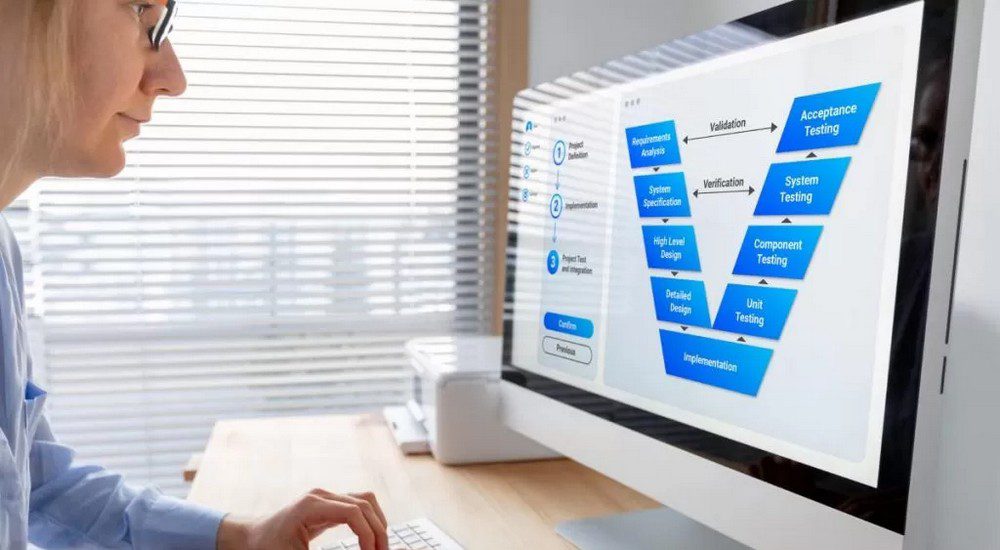Blog
Articles to grow your career
Article
Difference Between QC and QA Engineer
Today let’s look at the difference between testing, quality control (QC), and quality assurance (QA). The article will be useful to those who start their journey in testing.
If you have already looked at vacancies in testing, you have noticed that many tester jobs are called QA engineer or QA specialist. Let’s see what this means.
The scope of testing can be divided into 3 conventional levels.
Testing
It includes passing test cases, detecting and reporting defects.
The general testing scheme looks like this:
- The tester gets the product and requirements
- Writes or receives ready-made test cases
- Checks test cases and makes bug reports if it finds any defects
In other words, this is the most real testing in the truest sense of the word.
Quality Control
An employee of the quality control department makes sure that the product (program/application/website) meets the requirements.
Imagine yourself in a factory where parts are made. Your task is to assess whether the part is ready for release, or if it needs to be sent for revision. To decide whether our product is ready for release, the QC specialist has test results: the number and priority of errors. If high-priority defects are present then QC will insist on fixing these bugs first.
Quality Assurance
And so we got to QA. A QA specialist monitors the entire product development process (not just testing). Their task is to find weaknesses in the project and eliminate them.
The easiest way to explain it is with an example.
There is a problem with the project: the poor product quality. QA starts to sort it out to understand the reason. After talking to the team, QA figures out that the project lacks proper design. New features are taken to work without estimation of labor costs, and the team tries to meet the deadline. As a result, developers in a hurry make many mistakes, and testers do not have time to check all test scripts. The solution is to implement workload estimation for new features and plan based on that workload.
Do you want to join us?
Leave an application and get a free consultation from our manager.
- Help in choosing a direction
- Course consultation
- Additional materials for the start
Or another example.
After analysis, it turned out that the reason for the poor quality is that the developers change the code after the final check of the testers. In other words, testers tested one version of the product, but instead, they released another version tested by no one. In this case, you can impose restrictions on changing the code before the release, when no one can update the code without the consent of the testers.
QA looks for the real causes of serious errors and tries to eliminate them with the help of the project team. Sometimes this is “cured” by more rigorous testing, sometimes by process changes, sometimes by architectural improvements to the product. In any case, QA is a very useful role for the project, because thanks to it, the quality of the product improves, the processes become more correct and transparent, and the risk of disruption or postponement of the release is minimized.
Testing is inextricably linked with QC, usually, the testing department is just Testing + QC. But the QA role on the project may not exist. Often, only mature companies have this role and even an entire QA department. If your company does not have a QA, you may well become one.
Why are there so many vacancies for QA specialists? The fact is that many do not know the difference and by QA specialists they simply mean testers. Therefore, see the job description. If there is writing, checking test cases, and introducing bugs ─ this is not QA, but Testing.




